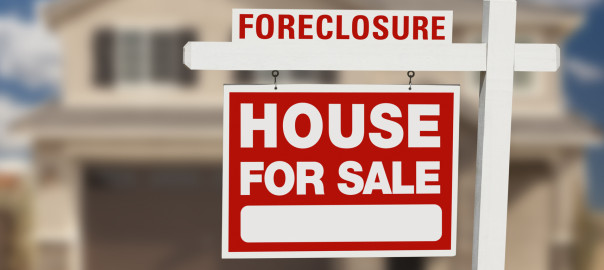Foreclosure vs. REO Property Stages
By JD Esajian on September 23, 2013
If you are just starting out as an investor, differentiating between every real estate term can be difficult. One of the most confusing delineations has to deal with the differences between foreclosed and real estate owned (REO) properties. They sound similar enough, but in reality, they are completely different. Properties in the foreclosure process are still owned by the homeowner, while real estate owned properties are owned by the lender. Making an offer based on what stage the property is in can end up making all the difference in a good deal or one that will be a bigger headache than it’s worth.
REO, or real estate owned, is a property that a lender takes possession of after an unsuccessful sale at a foreclosure auction. A property can be transferred through strict foreclosure or deed in lieu of foreclosure depending on your state/county. Once a homeowner is late on their mortgage, the lender will start to look for a remedy to the situation through a short sale, loan modification or deed in lieu of foreclosure. If no progress is made after four months, they will start the foreclosure process. Once entering foreclosure, the homeowner has a few options they can use to try to keep their home. One, they can pay off the entire amount owed. This is typically an unrealistic option. Common sense tells us that if the homeowner had the money to pay they probably would have paid many months ago. It is rare, but in some cases the homeowner can reach out to a family member or draw from a retirement fund to come current on the property. The next remedy is to try to sell the property through means of a short sale. A short sale may delay the foreclosure process if a judge sees that progress is made, but it will not stop it. The final, last ditch option for homeowners is to declare bankruptcy.
After exhausting all of their options, the lender will foreclose on the property and become its owner. Lenders are in the business of lending money and do not want the property on their books. Before they even take ownership, the cost of going through foreclosure is thousands of dollars. Plus, every month they have to pay insurance and taxes on the property. Depending on what part of the country the property is in, they may have to winterize and maintain it. They want it off the books as soon as people may want to buy it.
It is a misconception that the bank wants to rid themselves of these money costing, non-performing assets at any price. Even though, in theory, that is correct, it does not mean they are going to give the properties away. Even though the lender is now the owner and the seller, they still want to obtain fair market value. This value is obtained from market value opinions from a licensed appraiser and at least one, sometimes several, local real estate agents by creating a BPO (Brokers price opinion). Sometimes they will take less than what they value the property for if other factors are involved: cash offer, length of time on the market, property condition and whether the property in financeable.
As an investor, you ideally want to work with a homeowner as soon as they are late on payments and before the foreclosure process begins. This way, they are still the owner and can sell without bank approval. Once the foreclosure happens, you then have to deal with the bank, which effects purchase price and approval time. Finding these properties takes time and effort, but if you find the right one, it will all be worth it.